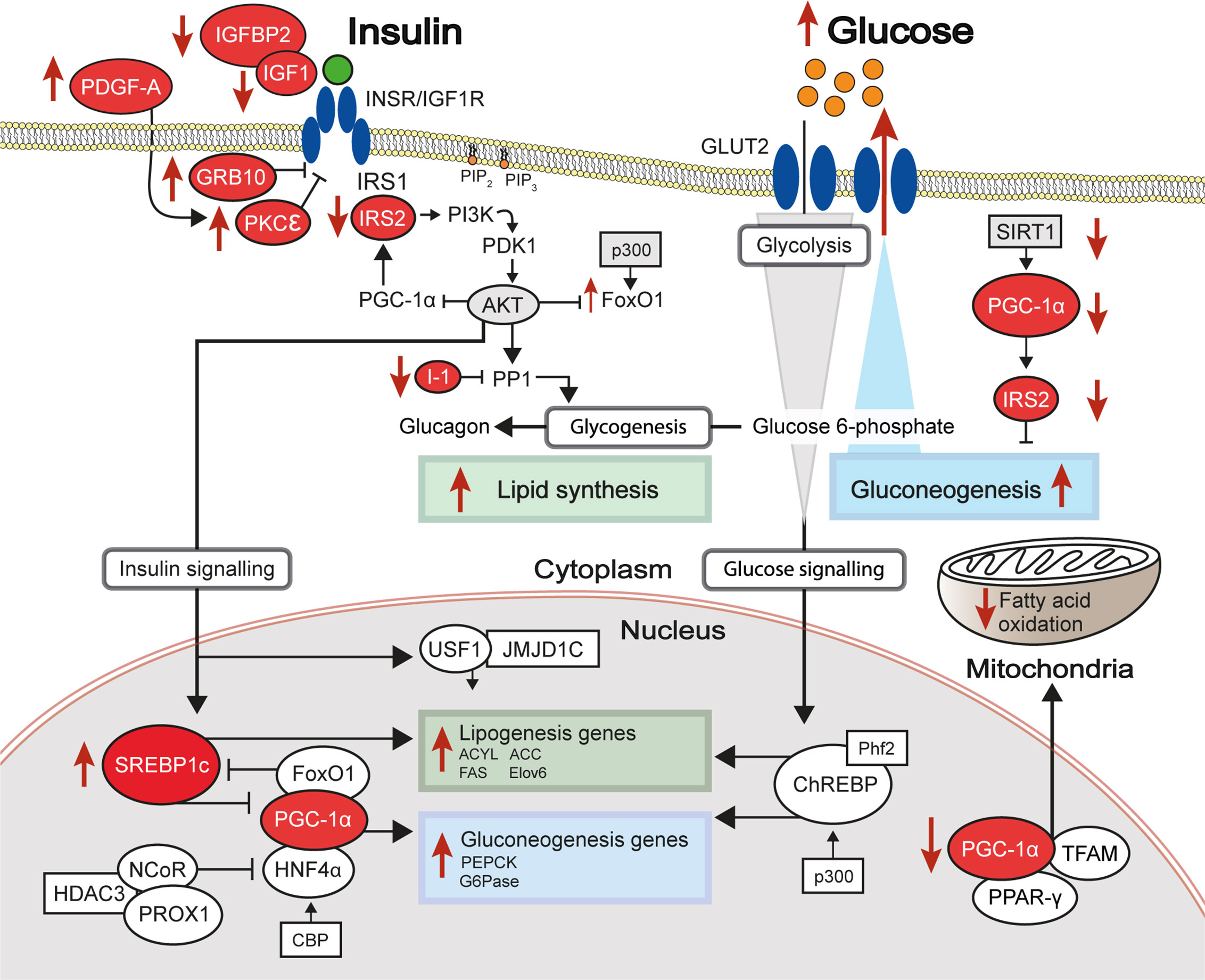Insulin resistance is a condition where cells have a reduced response to insulin, leading to decreased glucose uptake and elevated blood glucose levels. This condition often results in type 2 diabetes, obesity, and other metabolic diseases. As an essential target organ for insulin, changes in liver function significantly affect overall insulin sensitivity.
Gene methylation is a critical form of epigenetic modification that can influence gene transcriptional activity. In the liver, gene methylation can regulate genes involved in glucose and lipid metabolism, affecting insulin signaling pathways. For instance, the methylation levels in the promoter regions of genes related to gluconeogenesis (such as PGC-1α, PCK1) in the liver can influence their expression, subsequently affecting insulin sensitivity.
Research has shown that insulin resistance is closely linked to abnormal methylation of key genes in the liver. For example, abnormal methylation of genes involved in fatty acid synthesis and storage (such as SREBP-1c, FASN) has been observed in the liver tissues of obese and type 2 diabetic patients. These abnormal methylation patterns may lead to abnormal fat accumulation in the liver, promoting the development of insulin resistance.
Moreover, oxidative stress and inflammatory states are considered significant factors that contribute to abnormal gene methylation. These environmental factors may induce abnormal methylation of liver genes, further exacerbating insulin resistance and metabolic disorders.
There is a close interplay between liver gene methylation and insulin resistance. Understanding these mechanisms not only helps to unveil the pathogenesis of insulin resistance but also offers potential new targets for future therapeutic strategies. For instance, demethylation therapies targeting specific genes could become a novel approach to reversing insulin resistance.
References
1. Maude H, Sanchez-Cabanillas C and Cebola I (2021) Epigenetics of Hepatic Insulin Resistance. Front. Endocrinol. 12:681356. doi: 10.3389/fendo.2021.681356
2. Charlotte Ling, Tina Rönn,Epigenetic adaptation to regular exercise in humans,Drug Discovery Today,
1359-6446,
3. Bouchard, L., Hivert, M. F., Guay, S. P., St-Pierre, J., Perron, P., & Brisson, D. (2012). "Placental adiponectin gene DNA methylation levels are associated with mothers’ blood glucose concentration." Diabetes, 61(5), 1272-1280.

